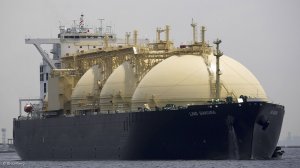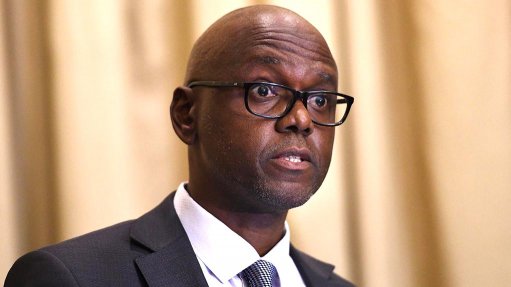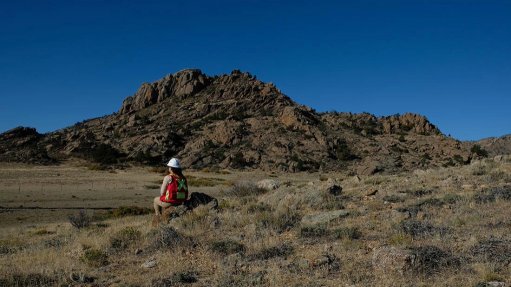Role of gas in SA’s future energy mix under intense scrutiny

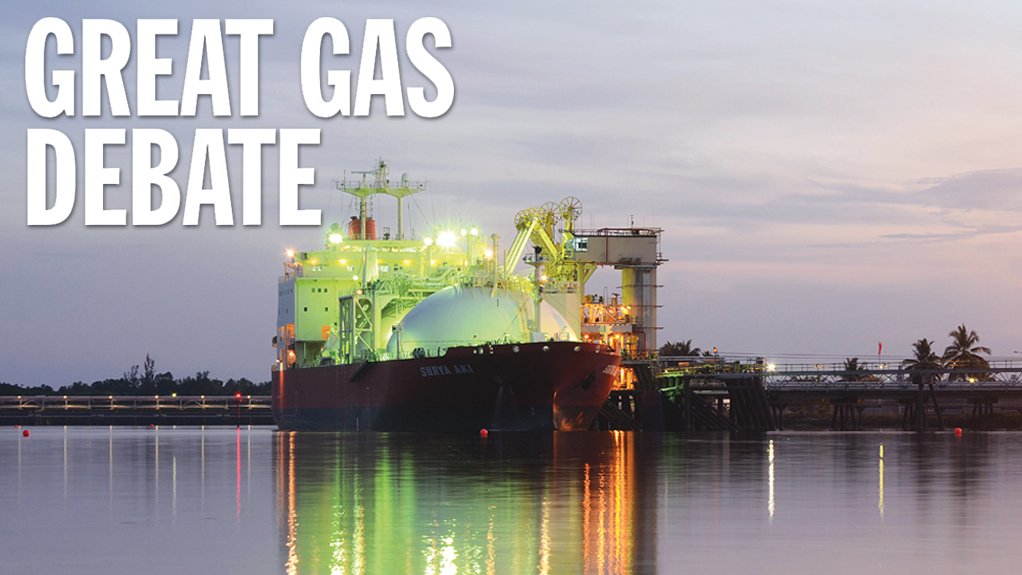
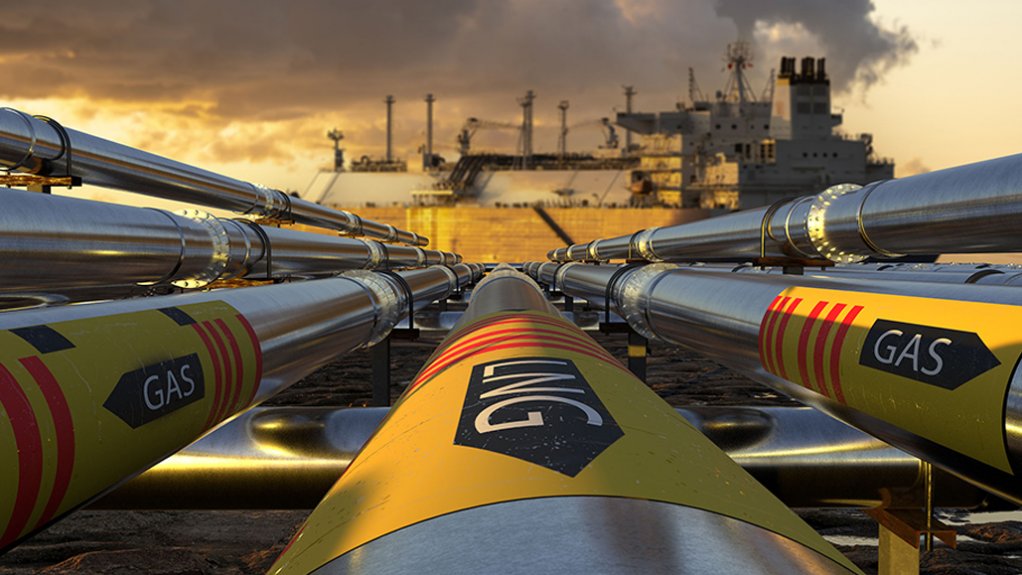
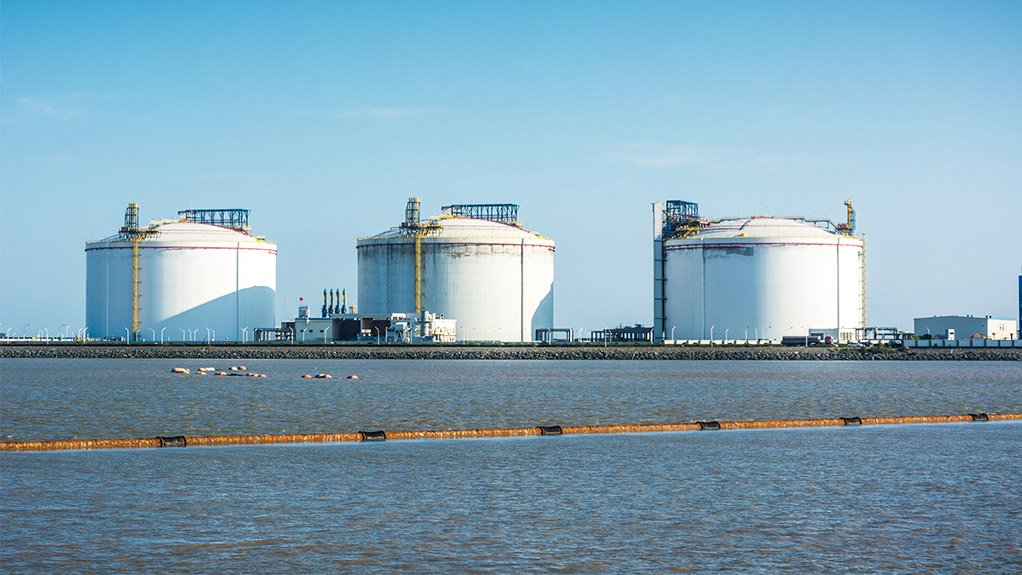

GAS CLIFF Until local gas resources come on stream, an impending gas shortage undermines South Africa’s near-term future dependence on it
READY TO RECEIVE South Africa has some of the infrastructure in place to import gas but will need to develop more
FROM AFAR South Africa will have to import most of its gas in the short term
Photo by Bloomberg
Given South Africa’s ongoing energy crisis, there remains much debate around whether gas should be included in the future energy mix and, if so, how much.
Advocates argue that the fossil fuel is a necessity and a step up from coal – since it produces fewer carbon emissions when burned – but many still oppose its large-scale incorporation into, owing to the global shift towards clean energy technologies such as renewables, battery storage, green hydrogen and even nuclear.
However, with new nuclear being expensive and relatively high-risk given its long construction lead times, hydrogen being some years away commercially and likely to be directed first towards hard-to-abate sectors rather than electricity, gas-to-power along with battery storage are strong contenders for helping South Africa to close the variability gaps that are invariably left by renewables.
Government heavily supports gas in the electricity sector and is belatedly working with industrial stakeholders to avert a "gas cliff" later in this decade, which will arise from a tapering of supply from Mozambique and Sasol diverting the balance to its own facilities as part of its own decarbonisation efforts.
The draft Integrated Resource Plan of 2023 (IRP 2023) indicates that the current electricity shortfall in the country can be overcome only by ensuring that 7 220 MW of new gas-to-power capacity is installed; it also declares that these dispatchable plants should operate at a “high utilisation factor” of 86.71%.
Using gas as a key part of South Africa’s energy mix has become even more pronounced following the discovery and development of significant natural gas resources off the coasts of Mozambique, Namibia and South Africa.
However, Mozambique’s potential as a gas supplier continues to be severely undermined by conflict in the region, while the resources in the south of the country are tapering. South Africa’s discoveries remain a long way off, in terms of time and funding, from development. Until these resources come on stream, an impending gas shortage undermines South Africa’s near-term future dependence on it.
“The stakeholder community is fairly divided on the role of gas, with some people believing there is no role for gas. On the other end of the spectrum, there are people believing that we should be investing significantly in domestic gas resources,” Presidential Climate Commission (PCC) head of mitigation Steve Nicholls said during a webinar on the role of gas in South Africa's energy transition, hosted by Creamer Media on March 13.
Speaking as one of five panel members, he said the PCC recently carried out a review of major energy studies in South Africa – done by the University of Cape Town, the National Business Initiative, the Council for Scientific and Industrial Research, and Bloomberg – that assessed the role of gas in the country's energy future.
He confirmed that all these studies agree that the cheapest electricity system for South Africa going forward would comprise a combination of variable renewable energy, peaking support and storage, which could either be pumped hydro or batteries.
However, for the peaking support, gas is predominantly recommended across all the models presented.
“We certainly see a role for gas, providing peaking support, which is essential for variable renewable-energy systems to provide energy security. The options about where you get that gas, whether you source it locally or whether you import liquefied natural gas (LNG), is really the key topic of debate,” he explained.
Wärtsilä Energy GM Tord Johnson, who agreed with Nicholls, said that “when renewables are not available, you need flexibility technologies, you need some gas power solutions that are flexible. You also need energy storage to balance the renewables and ensure reliability to the system”.
However, Nicholls is not convinced that a reliable source of local gas supply will be brought to bear in time for the approaching “gas cliff”, leading him to expect that South Africa will have to import gas from abroad at higher prices.
“People believe the Brulpadda and Luiperd LNG discoveries off the coast of South Africa to be further along the maturity spectrum than they are in reality. I'm not sure that we're going to get organised quickly enough to get these resources on time. That may have a particularly large impact on industry, industry sustainability and on those that currently depend on gas for their manufacturing,” he explained.
Industrial Gas Users Association of South Africa executive officer Jaco Human, who facilitated the discussion, said that Richards Bay was becoming a key point for the development of gas-to-power in South Africa, but was unlikely to be the answer to the gas crunch being faced by industrial consumers.
“We face a gas-to-power policy where there is significant reliance on gas but we also face severe gas energy shortages. We are sitting with polarising positions. We don't have the infrastructure and [the Richards Bay Industrial Development Zone (RBDZ)] has a critical role to play,” he said.
Human argued that there should, thus, be support for importing LNG into Gauteng, Mpumalanga and initially KwaZulu-Natal through a proposed terminal in Maputo, which he said would ultimately complement Richards Bay hub, which was focused primarily on gas-to-power.
That said, he also argued that the electricity sector had a key role to play in anchoring the demand required to make such a terminal viable.
Nevertheless, RBDZ COO Muzi Shange said the RBDZ was “bullish” about the possibility of gas development, as it stood to be a key player because of its ideal location, existing infrastructure and confirmed demand.
He said that the Port of Richards Bay is a deep-sea water port that is perfectly suited to the building of the necessary importation of facilities for LNG.
“We have existing infrastructure that links up to Richards Bay. When we are talking about Mozambique, we have a link to Secunda through the Rompco pipeline, which then comes down to link to us and the Lilly pipeline, down through the picking stations into Durban. We are able to leverage the existing infrastructure,” Shange said.
With the “day zero” approaching, large industrial users were starting to prepare for “what is likely to be a disaster”, and Richards Bay was primed and ready to take advantage of the opportunity that the looming shortage presented.
“We are quite excited because for us to drive the kind of industrialisation that we are seeing growing, and with all the new investments that are coming, we definitely have to look at gas as an option and as a transition fuel going forward,” Shange added.
Johnson said if South Africa were to embrace gas-to-electricity, it was important that gas power plants are reliable and efficient.
“The trend for gas power plants is that they are going to peak more and more. So, a lot of starts and stops. A lot of part-load operating missions; therefore, it is important that the systems installed have the best efficiency and meet these requirements. It's really important that you have a solution installed in the system today that also can meet the future requirements of the system,” he explained.
In terms of funding structures for these capital-intensive projects, RMB senior investment banker Keith Webb is not sure whether enough commercial thought had been given to the way in which LNG will be supplied to a gas-based independent power producer (IPP) programme and that this process needed more optimisation.
“The commercial construct needs to be thought through very carefully to make it efficient and cost effective,” he said.
However, he believes that South Africa’s financial sector was ready to take on the challenge: “There's substantial experience from the banking sector in the renewable space and in funding those projects, and I think the gas IPP space levers on that substantially.”
Despite its role as a reliable bridge fuel, the uncertainties surrounding local gas supply and the looming "gas cliff" seem to require a nuanced approach that balances immediate energy security with long-term sustainability goals.
It demands the swift deployment of strategic infrastructure but also a harmonised dialogue among stakeholders to ensure both economic viability and responsible environmental stewardship.
Comments
Press Office
Announcements
What's On
Subscribe to improve your user experience...
Option 1 (equivalent of R125 a month):
Receive a weekly copy of Creamer Media's Engineering News & Mining Weekly magazine
(print copy for those in South Africa and e-magazine for those outside of South Africa)
Receive daily email newsletters
Access to full search results
Access archive of magazine back copies
Access to Projects in Progress
Access to ONE Research Report of your choice in PDF format
Option 2 (equivalent of R375 a month):
All benefits from Option 1
PLUS
Access to Creamer Media's Research Channel Africa for ALL Research Reports, in PDF format, on various industrial and mining sectors
including Electricity; Water; Energy Transition; Hydrogen; Roads, Rail and Ports; Coal; Gold; Platinum; Battery Metals; etc.
Already a subscriber?
Forgotten your password?
Receive weekly copy of Creamer Media's Engineering News & Mining Weekly magazine (print copy for those in South Africa and e-magazine for those outside of South Africa)
➕
Recieve daily email newsletters
➕
Access to full search results
➕
Access archive of magazine back copies
➕
Access to Projects in Progress
➕
Access to ONE Research Report of your choice in PDF format
RESEARCH CHANNEL AFRICA
R4500 (equivalent of R375 a month)
SUBSCRIBEAll benefits from Option 1
➕
Access to Creamer Media's Research Channel Africa for ALL Research Reports on various industrial and mining sectors, in PDF format, including on:
Electricity
➕
Water
➕
Energy Transition
➕
Hydrogen
➕
Roads, Rail and Ports
➕
Coal
➕
Gold
➕
Platinum
➕
Battery Metals
➕
etc.
Receive all benefits from Option 1 or Option 2 delivered to numerous people at your company
➕
Multiple User names and Passwords for simultaneous log-ins
➕
Intranet integration access to all in your organisation





